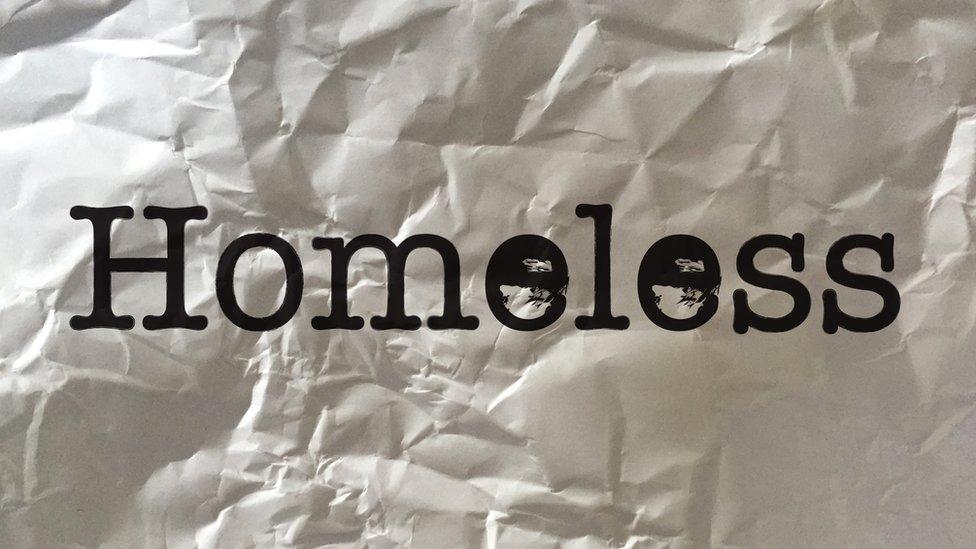Northern Ireland's 'hidden homeless' living life in limbo
- Published
Donald Dick spent three years sleeping in cars and friends' sofas.
A man who spent three years sleeping in cars and on settees says having his own place to live is the "best feeling in the world".
Donald Dick was part of Northern Ireland's so-called hidden homeless - people who only have temporary accommodation.
While there is no official data, it is believed there are thousands of people like Donald in Northern Ireland.
He moved out of his parents' house because there wasn't enough room.
But he didn't have anywhere to go.
Donald said his experiences had been "rough".
"I was staying between my parents' home, which is overcrowded, and my mate's house," he said.
"I was sleeping in their car or some nights we would go and sleep in the studio, or sometimes I could go and sleep with my brother at his house.
"I slept in the car maybe once or twice a week. But sleeping in the car, there's no sleep at all, it's so rough."
'Getting nowhere'
Donald first went to the Housing Executive in 2015, but said there was no available accommodation.
"The Housing Executive made me fill in an application form and put me in the waiting list to start getting points, but the first two years the points were just the same," he explained.
"I was still going there, I'm still homeless, I'm not getting sorted or even to be put in accommodation. I just wasn't getting anywhere."
Three years later, in 2018, Donald moved to a hostel provided by homeless charity the Simon Community. In 2019, he got his own home.
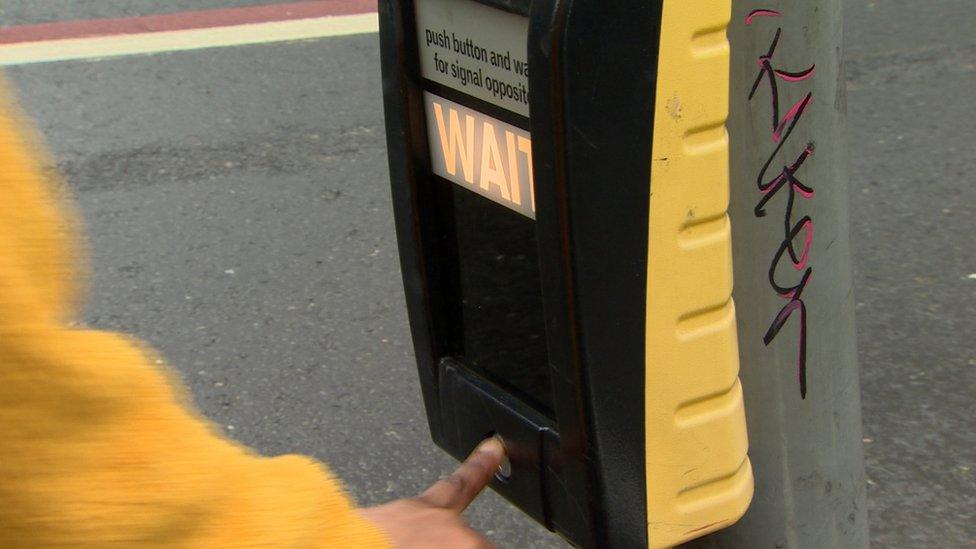
Donald said he felt he was going nowhere with housing applications
"Without it, my life would be a mess, I would still be going in circles, going to my friend's house, sleeping in the street.
"If you keep living in that environment, it will just keep on getting worse."
There are no official statistics on hidden homelessness in Northern Ireland.
That's partly because people living at a friend or relatives' house are not always going to reach out for help.
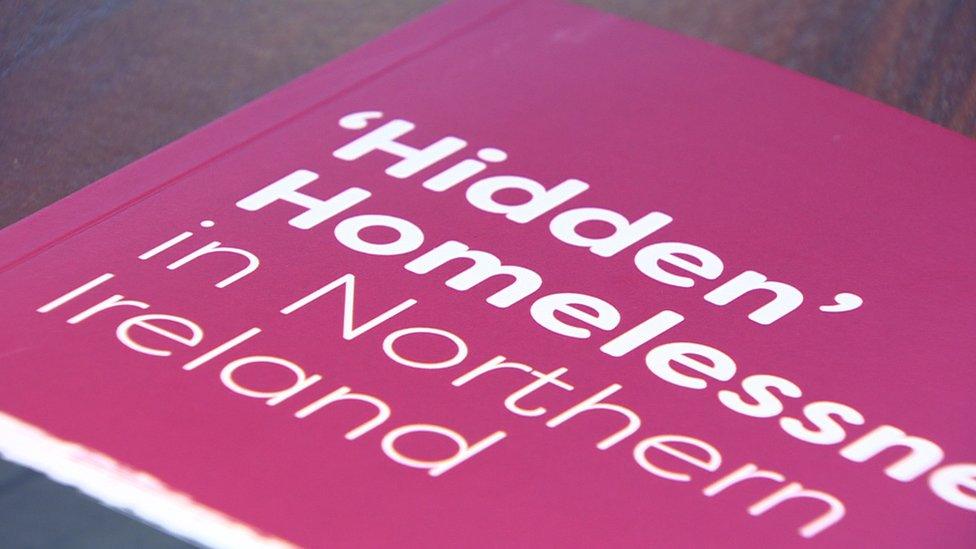
Prof Ann-Marie Gray from Ulster University has worked on a report with the Simon Community.
"The only people that are counted as homeless in Northern Ireland are the people who meet the criteria for statutory homelessness. That's quite a tight criteria," she explained.
"If you're seen to have made yourself intentionally homeless then you're not counted in those figures and you don't receive help."
Prof Gray said when people present as homeless, the authorities should ask much more about their circumstances.
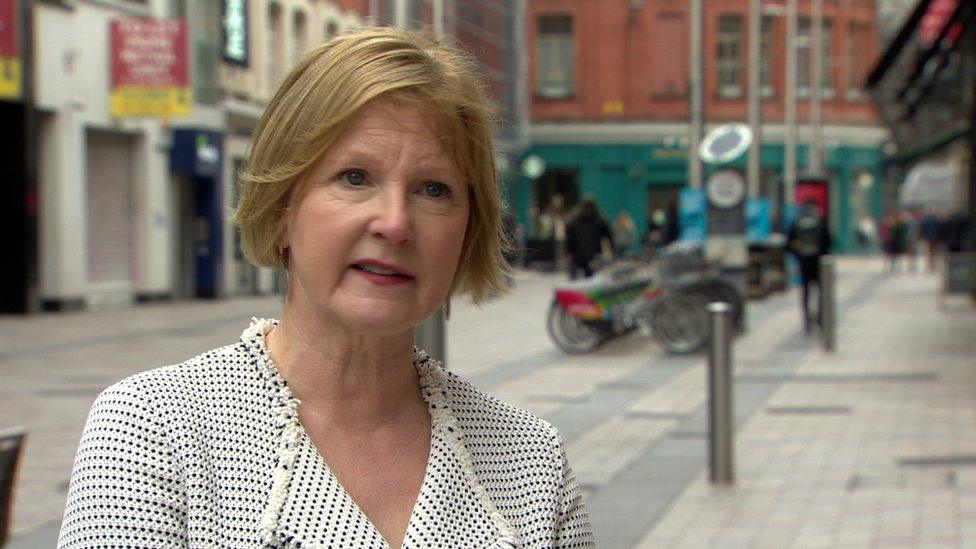
Prof Ann-Marie Gray said more help was needed at point of contact
"They should be obliged to do much more in terms of providing some support to stop those people from spiralling into homelessness which can sometimes last for years," she added.
Family fall-outs are not the only reason for people to come under the 'hidden homeless' umbrella.
The rising cost of living, low income, an increase in fuel prices or a hike in rent for those living in the private rented sector can all contribute to people not being able to afford their own home.
A long-term shortage in social housing also exacerbates the problem.
Prof Gray said: "With the housing crisis in Northern Ireland, particularly around affordability, there's no reason to expect that this problem will become any less - the opposite in fact.
"We know that there isn't sufficient housing supply in Northern Ireland, particularly of public sector housing.
"So people have to go to the private rented sector, and there are no rent controls currently on the private rented sector.
"We know from research that people are paying quite often considerably higher than what they get in housing benefit towards the cost of their housing."
The Simon Community, the organisation which helped Donald find his home, said there needs to be a better understanding of what hidden homelessness means.

Karen McAlister said there could be 100,000 'hidden homeless' people in NI
"There are estimations that up to 100,000 people are experiencing hidden homelessness," said Karen McAlister, head of research and development at the Simon Community.
"Northern Ireland is a very close knit society, we're always offering help and support, which actually means that people sleeping on sofas remain invisible."
Ms McAlister said it was crucial that people felt comfortable coming forward and that help was offered when they needed it most.
"I do believe we are in a housing and homelessness crisis," she added.
"If you look at the number of people in housing distress, in temporary accommodation and if today we're talking about up to 100,000 people in Northern Ireland experiencing hidden homelessness, yes I do call that a crisis."
Related topics
- Published18 September 2021
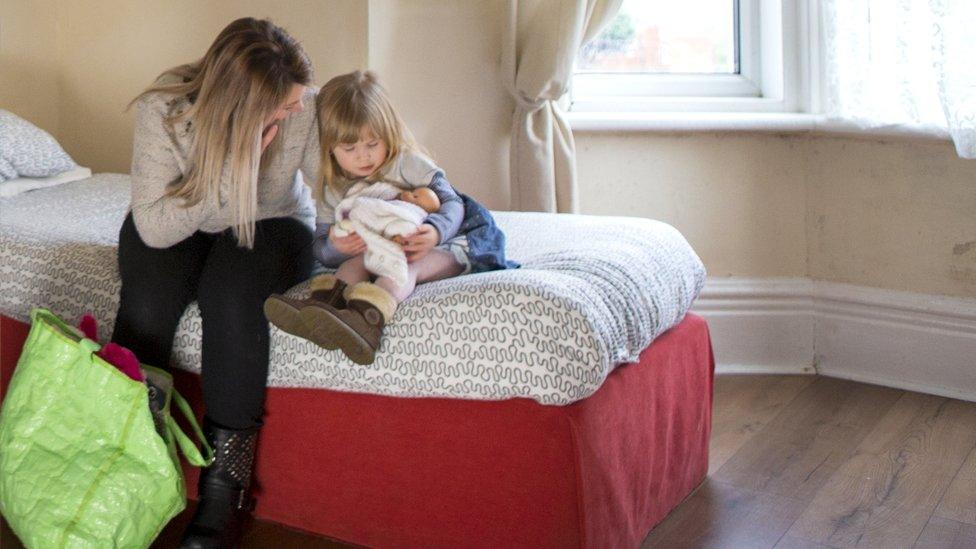
- Published13 February 2022
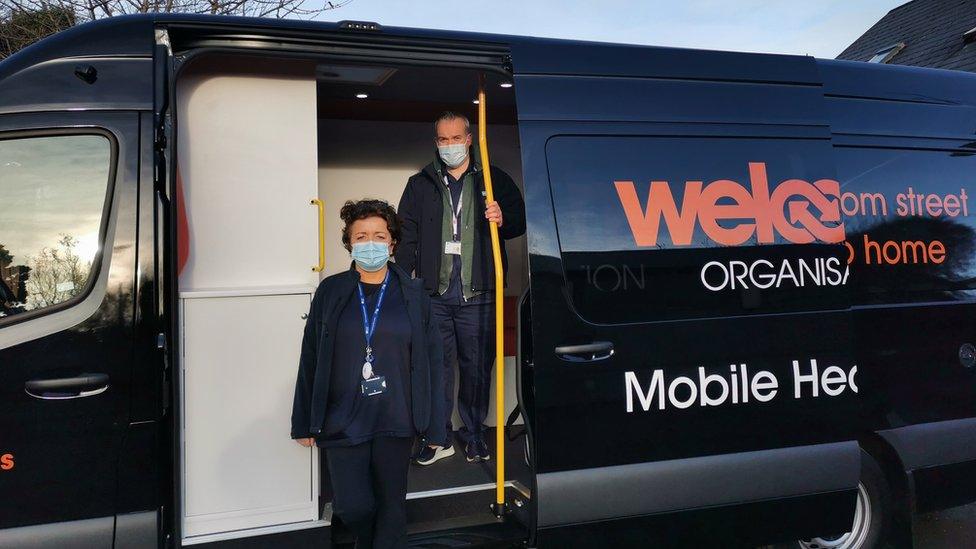
- Published21 December 2019
